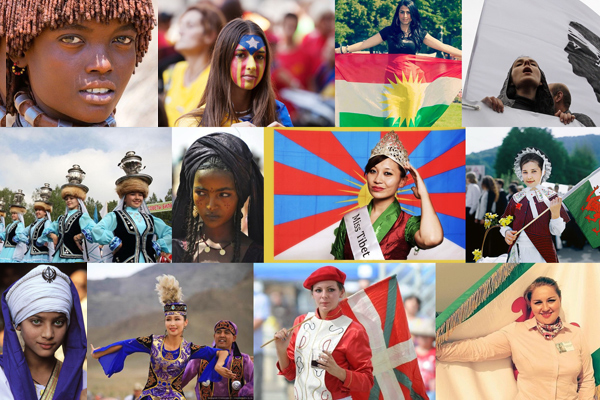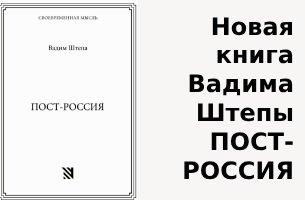Сокращённая и авторизованная версия текста «Регионализм как новая вера, или От невроза философской деконструкции — к эйфории социального синтеза», опубликованного на сайте Liberal.ru. English version below.
XXI век — уже не дитя. Скоро он разменяет третий десяток, но так до сих пор и не повзрослел — не выбрал правильный жизненный путь. И, самое главное, не научился решать проблемы, которые достались ему по наследству от предыдущего столетия, страшного и в то же время полного надежд. Вызовы XX века — войны, конфликты и гибель природы — перешли в век нынешний. Надежды — на всеобщий мир, прогресс и процветание — умерли и остались в прошлом.
Но почему умерли надежды? Потому что зло вдруг стало невидимым. Причины несчастий, обрушивающихся на людей, начали казаться множественными, фатальными и необъяснимыми.
На самом же деле у всех главных бед современности — один ответ, одна причина о двух концах. Это, с одной стороны, монополия государств на право и власть и, с другой, бесправие людей и незащищённость их региональных домов перед угрозами, исходящими от государств— полновластных хозяев их жизни и безопасности.
Международное право построено таким образом, что признаёт по факту права исключительно государств — членов ООН, которым ст. 2 Устава ООН гарантирует «территориальную неприкосновенность» и «политическую независимость». Иными словами — суверенитет. Именно государственный суверенитет на деле является главной международной ценностью. В жертву ему приносится всё прочее, что формально декларировано Уставом ООН и другими международными актами — права человека, права народов, права меньшинств, охрана природы и т.д.
О правах регионов — исторически сложившихся территорий, у которых должны быть все возможности для сохранения своей культуры и экологии, своей самобытности и уникальности — основные международные документы молчат. И неслучайно — ибо на бесправии регионов и зиждется всемогущество государств.
В итоге мир на сегодня наполнен массой неразрешимых конфликтов, войн и экологических бедствий. Всё дело в том, что государства — независимо от степени демократичности их внутреннего устройства — по самой своей природе склонны имперски возвышаться над людьми и их региональными домами. Государства воспринимают регионы как объекты, которыми может владеть, пользоваться и распоряжаться «высокое начальство» (неважно, парламент это, диктатор или король), находящееся за десятки, сотни и даже тысячи километров от той или иной территории. Отсюда — игнорирование интересов «провинциалов», отсюда — небрежение «провинциальной» природой.
Да, в либерально-демократических странах, особенно в федерациях, многие регионы имеют высокую степень самоуправления. Но лишь до тех пор, пока не начинают покушаться на целостность, неприкосновенность и суверенитет «государств-хозяев». В этом случае регионалов ждёт бескомпромиссное подавление различной степени жёсткости – в зависимости от политической культуры государства-хозяина. Но в любом случае — подавление. В диапазоне от адресных полицейских репрессий против сепаратистов (Каталония, Страна Басков, Ольстер и др.) — до полномасштабных войн на собственной территории (Катанга, Биафра, Тамил-Илам, Чечня, курдские территории и т.д.), а также этнических чисток и депортаций (геноцид тутси в Руанде, депортация рохинджа в Мьянме и пр.).
В редких случаях — под давлением других государств либо, что реже, по собственной воле — государства-хозяева дают «мятежным регионам» шанс на референдум и независимость. Но такие случаи единичны.
Абсолютное большинство войн и конфликтов современности так или иначе связаны либо с тем, что «мятежные регионы» – «сепаратисты» – стремятся к отделению от государства-хозяина, либо с тем, что различные государства отстаивают свои «хозяйские» права на тот или иной регион – Хузестан, Фолклендские острова, Кувейт, Кашмир, Крым и т.д.
Абсолютное большинство экологических катастроф также связаны с тем, что безответственные решения принимаются в «столичном центре», а страдает от их последствий — «региональная периферия». При этом жители регионов, на которые «центр» сваливает экологические беды — как, например, жители Архангельской области, которым грозят то миллионы тонн московского мусора, то последствия радиационных аварий, или обитатели сибирских областей, задыхающихся от лесных пожаров, до которых «центру» просто нет дела, — фактически лишены возможности взять судьбы региональной экологии в свои руки.
К этому стоит добавить, что Устав ООН и сама практика международной жизни выстраивают государства в жёсткую иерархию, где, как на оруэлловской ферме, «одни животные равнее других». А именно, сильные — как правило, ядерные — державы в реальности имеют больше прав, чем страны более слабые в военном и экономическом отношении. Всё это, как нетрудно понять, лишь добавляет современному миру ощущение глобальной несправедливости. А это, в свою очередь, усиливает международную напряжённость.
Таким образом, «суверенные государства» как единственные по-настоящему полновластные хозяева человечества — очень плохие гаранты прав человека. В том числе первейшего права человека — на безопасную жизнь в собственном доме.
Это вынуждает искать другого гаранта прав и интересов человека, который, в отличие от «суверенных государств», был бы лишён — по самой своей природе — экспансионистских и вообще «державных» амбиций и не стремился бы командовать землями и народами, удалёнными от него на тысячи миль.
Такой субъект международного права есть — это регион.
Регион — это первичный международный «атом», расщепление которого в большинстве случаев и невозможно, и ненужно. Дело в том, что этого не хотят сами его граждане, для которых их земля — это их дом. А к разбору дома «на кирпичики» люди, как известно, не стремятся. Они стремятся беречь общий дом. И каждый дом самодостаточен. Региональный дом в том числе.
В то же время и «расширение» региона так же немыслимо, как расширение человека за пределы его собственного тела. Более того, как только регион насильственно присоединяет к себе другой, то в ту же секунду теряет себя и превращается в раба вновь возникшего «большого государства», которое начинает возвышаться над правами и интересами всех подвластных ему территорий.
Конфликты между регионами-соседями, конечно, возможны. Они могут поспорить о чём-то, в том числе о какой-то горке или полянке, где никто не живёт и где по этой причине невозможно провести референдум, чтобы решить, чья же она, в конце концов. Но такой спор всё же куда менее опасен, чем схватки суверенных держав за «жизненные пространства».
Таким образом, на повестке дня человечества — смена «парадигмы суверенитета». Коль скоро «суверенные государства», которым международные законы по факту отдали на откуп «права человека», оказались очень плохими гарантами этих прав, значит, нужен новый гарант — регион. А значит, логично предположить, необходим новый документ, способный защитить людей от вторжения территориально амбициозных государств в их жизнь и в жизнь их региональных домов – «Декларация прав регионов».
Международному регионализму, стоящему на страже интересов людей и сохранности их территориальных домов как воздух необходим сегодня свой политический язык и своя система базовых ценностей. Эти новые слова и новые смыслы нужны для того, чтобы мир перестал топтаться в кровавых брызгах «постсовременности» — и двинулся, наконец, в мирное и благополучное будущее.
Важнейшими положениями «Декларации прав регионов» могли бы стать следующие:
— Право человека на обретение и сохранение регионального дома;
— Право человека на свободный выбор региональной идентичности и принадлежности к той или иной регионации;
— Право регионации на суверенитет, независимость и одностороннюю сецессию;
— Право региональной цивилизации на сохранение своих культурных основ;
— Право региональных цивилизаций на свободный и открытый культурный диалог друг с другом, не ставящий под угрозу культурные основы каждой из них.
Содержательной основной «Декларации прав регионов» могли бы стать следующие ключевые понятия:
— регион,
— региональный дом,
— региональная цивилизация,
— регионация,
— региональный суверенитет,
— односторонняя региональная сецессия,
— рекурсивная региональная сецессия (позволяющая территориям отделяться от тех, которые только что отделились от государства-хозяина),
— и ряд других.
Конкретное определение и содержание каждого из этих базовых терминов – а равно иных, которые могли бы дополнить этот перечень – должно, конечно же, стать предметом отдельного (впрочем, уже начатого – https://region.expert/regionations/, http://www.rosbalt.ru/blogs/2018/07/09/1716058.html, http://liberal.ru/articles/7346, http://liberal.ru/articles/7347, http://liberal.ru/articles/7364) всестороннего обсуждения.
Стоит особо подчеркнуть, что «Декларация прав регионов» отнюдь не перечеркивает «Декларацию прав человека». Напротив – она просто даёт ей новое, более реалистичное измерение.
«Декларация прав регионов» дарит человечеству шанс на менее конфликтную модель развития, свободного от угрозы насильственных вторжений (в том числе под предлогом защиты «прав человека», а на деле — во имя державных интересов «национальных государств») в региональные цивилизации извне, со стороны других государств либо собственных «центральных правительств».
Всё это, конечно же, не означает, что мировое сообщество должно быть безразлично к фактам геноцида или этнических чисток на той или иной территории. Но именно понятие регионации как носителя регионального суверенитета даёт возможность мирного размежевания, в том числе чисто территориального, конфликтующих сообществ в большинстве случаев. Сегодня различные этно-конфессиональные и региональные сообщества, заключённые в пределы единого государства – члена ООН, такого права лишены. И не имеют законной и ненасильственной возможности развестись «в одностороннем порядке», если «главный супруг» – «национальное государство» – согласия на «развод» не даёт.
Сложные и исторически запутанные кейсы, разумеется, неизбежны. И одним из инструментов межрегионального регулирования мог бы стать третейский межрегиональный суд (в средневековой Европе при спорах между городами-коммунами, к слову, институт третейских судов был весьма популярен и эффективен).
Свобода регионального самоопределения отнюдь не означает немедленного распада всех ныне существующих государств. Точно так же, как право на развод не означает немедленного распада всех существующих семей. И там, где части единого целого живут в любви и согласии, там право на «развод» является не детонатором, а скрепой. Ибо любовь и согласие – атрибуты свободы, а не принуждения. По этой причине утверждение прав регионов лишь укрепит те государства, в которых различным землям уже сегодня живётся мирно и счастливо.
«Декларация прав регионов» даёт человечеству шанс на мир и свободу. А точнее, на мирную свободу. Ибо оптимальное развитие мирового сообщества в XXI веке видится не как «конец истории по Фукуяме», то есть не как повсеместное распространение модернизации и вестернизации «любой ценой», но как повсеместная эмансипация локальных пространств — региональных цивилизаций, сопровождающаяся демонтажом тех государств («цивилизаций-монстров»), которые находятся в состоянии конфликта с региональными сообществами и не дают им шанса на свободное развитие. И «Декларация прав регионов» могла бы стать идейным и международно-правовым фундаментом этого процесса.
Daniel Kotsyubinsky
Regionalism: A New Language of A New Century
An abridged and authorized version of the article: «Regionalism as a New Faith: From the Neurosis of Intellectual Deconstruction to the Euphoria of Social Synthesis» published at Liberal.Ru
The century we live in is no longer a baby. It will celebrate its 20th anniversary soon. However, it’s in no hurry to grow up and to discover the right track to follow. More importantly, however, it still hasn’t acquired the skills necessary for dealing with the problems it inherited from the previous century. That one was atrocious and full of hope at the same time. Most of the challenges of the 20th century – wars and conflicts, accelerating destruction of the environment, etc. passed straight into our time. Most of the hopes – for global peace, progress and prosperity – died and were buried with it.
Why did the hope die? The reason for that may sound rather strange: because evil suddenly, somehow became invisible. The reasons for the multiple horrors people must go through started to seem too numerous, fatal and way beyond any human comprehension.
However, all the calamities of our time stem from the same major problem, which is two-fold. On the one hand, it is the absolute monopoly of the state for power and coercion and – on the other – growing deprivation of the people of any ability to make decisions for themselves and their helplessness in the face of the threat to their regional homes, constantly emanating from states, that can threaten both their lives and their security.
International law is structured in such a way that it only recognizes the rights of states – UN members – to whom Article 2 of the UN Charter guarantees «territorial integrity» and «political sovereignty». «Political sovereignty» is, in fact, the most precious thing of all international matters. All other things — guaranteed on paper by the same UN Charter and other international Acts — such as human rights, rights of the peoples, minority rights, environmental protection, etc. are constantly sacrificed in the interests of «political sovereignty».
There is not a single word in the international documents and treaties regarding regional rights: the rights of territories which naturally emerged as a result of common history and who should possess all the necessary tools in order to preserve their culture, their environment, and their unique cultural identity. International law preserves total silence in this matter, and it does so for a reason. All the power of states is based on the powerlessness of regions.
As a result, our world is now full of irresolvable conflicts, wars, and ecological disasters. The reason for this is simple: by their very nature states tend to imperially trample upon the people and their regional homes, no matter how democratic they are in their inner structure. States regard regions as objects which may be «owned, used and controlled» by higher authorities (be it a parliament, a dictator or a king). These authorities may be dozens, hundreds or even thousands of miles away from any given region: hence no attention is paid to «provincial» interests, nobody is concerned about the condition of «local» environment.
Admittedly in the countries with liberal and democratic systems of government, many regions enjoy a reasonably high level of autonomy. This autonomy, however, lasts only as long as it doesn’t threaten the territorial integrity, inviolability and the sovereignty of the «master states». In such a case, the «regionalists» can expect a hardline suppression. The level of cruelty of such suppression may vary, depending on the political culture of the «master state». But there will be suppression, without any doubt. The scope of the oppressive measures can go from targeted police actions against the separatists (Catalonia, the Basque Country, Ulster etc.) to an all-out war (Katanga, Biafra, Tamil-Eelam, Chechnya, territories of the Kurdish Nation, etc.) and to ethnic cleansing and deportations: (genocide of the Tutsi in Ruanda, deportations of the Rohingya in Myanmar).
There are examples when the «master states» give their «rebel regions» a chance for a referendum and as result grant them independence. It may happen under the pressure from other states and – much more rarely – of their own volition. However, such cases remain few and far between.
The absolute majority of the wars and conflicts of our time are related one way or another either to the fact that the «rebel regions» – the separatists – are pursuing their independence from the «master state» or to the fact that several states are establishing their «ownership rights» over some region or other: Khuzestan, the Falklands, Kuwait, Kashmir, the Crimea, etc.
The absolute majority of the ecological disasters are the results of irresponsible decisions taken in «the Capital-Center», while the «regional periphery» must suffer from the consequences. The population of the regions, which become the victims of «the Center’s» incompetence and irresponsibility, have no way to make decisions concerning their own lives and concerning the environment in which they are forced to live. Examples of such situations are numerous even in Russia alone. The population of the Arkhangelsk oblast is threatened by millions of tons of waste, produced in the Moscow region and by the consequences of nuclear accidents. The population of Siberia is suffocated by the smoke of forest fires of unprecedented, colossal proportions, which are totally ignored by the «Center».
It’s also worth mentioning that the UN Charter and everyday practices of the international affairs create a strict hierarchy, in which every state has an appointed place according to «some animals are more equal than others» principle. Strong states (usually the ones with nuclear arms) have de facto more rights than states with a weak economy and not-so-great armed forces. Understandably, all these phenomena add to the general awareness of global injustice in the world, which, in its turn stokes up the flames of international tension.
As we can see, «sovereign states», which are now the only fully able actors on the international scene, are the ones who hold the destiny of all humanity in their lap. They are totally inadequate guarantors of human rights, and, most importantly, the basic right: to a safe and secure life in their own homes.
It necessarily follows that some other guarantors of the human rights and interests must be found. Unlike «sovereign states», such guarantors have to be devoid by their very nature of any ambitions and /or aspirations to expansion and other attributes of «great powers», such as ruling the seas, territories, and peoples thousands of miles away.
We can easily find a subject of international law which answers all such requirements: it’s a Region.
The Region is the smallest particle of the international «matter». For the most part, splitting a region is impossible and quite unnecessary. First and foremost, because the people who live there don’t want to destroy it. People don’t usually take their homes apart brick by brick. They do their best to preserve their common home as well. Every home is self-sufficient, including the regional ones.
However, regional «expansion» is just as inconceivable as an «expansion» of a human being beyond his/her body. What’s more, as soon as a region takes in another region by force, it loses its own identity and turns into a slave of the new «big state» which puts itself above the rights and interests of all the territories it now controls.
Conflicts between neighboring regions are certainly possible. A conflict may arise concerning various matters, including rights to an uninhabitable territory, which, being unpopulated, can’t hold a referendum and express its own view of the matter. However, conflicts of this kind are infinitely preferable to the traditional struggle of the great powers for the «spheres of vital interests».
The current and most urgent business of the day for all mankind, therefore, is a radical change of the «sovereignty paradigm». Since «sovereign states», appointed to guarantee human rights by international law, failed to fulfill this mission, a new, more adequate guarantor of these rights must be recognized. A Region fits this role perfectly. It follows, therefore, that a new international document is required: a document which would establish the new status of a Region and which will guarantee the rights of Regions and their populations, while protecting them from any ambition and/or aggression on the part of large states and establishing once and for all their right to the security and safety of their autonomous regional homes. A Declaration of the Rights of Regions is the main business of the day.
International regionalism requires a whole new political vocabulary of its own. It also urgently needs a system of political and social values of its own. New vocabulary and new narratives are essential if the humankind wants to get beyond the walls of the prison of «postmodernity», the walls of which are splashed by blood and the chambers of which still ring with the cries of tortured victims. New ideas and ways to express them are essential if the world wants to make the first step towards a more peaceful and hopeful future.
The following statements present themselves as the most important for the Declaration of the Rights of Regions:
— Every human being has a right to his/her own regional home, its safety, and inviolability.
— Every human being has a right to freely choose his/her regional identity and to belong to any «regionation» (regional nation).
— Every regionation has a right to declare its independence, sovereignty, and to unilateral secession.
— Every regionation has a right to preserve its cultural heritage and cultural values.
— All regionations have a right to a free and open cultural interaction with each other, provided such dialog does not endanger the cultural values of either party.
The following key definitions may be used as a basis for further development of the Declaration of the Rights of Regions:
— Region
— Regional Home
— Regionation
— Regional sovereignty
— Unilateral regional secession
— Recursive regional secession (allowing territories to proclaim their independence from the regions which had recently detached itself from the «master state»
— And several others
The meaning of each of these basic terms and definitions as well as of others which could be added to this shortlist must be thoroughly discussed. Such a discussion is already taking place.
It’s especially worth mentioning, that the Declaration of the Rights of Regions in no way makes the Declaration of Human Rights null and void. On the contrary: it adds a new, more realistic dimension to this document.
The idea of regionation certainly don’t mean that the international community must stay indifferent to genocide or ethnic cleansing taking place in any given region. However, the notion of regionation as a base for the regional sovereignty presents a possibility for a peaceful separation of the conflicting sides, including territorial separation which is a viable option in most such cases. At present various communities, be they ethnic, religious or regional ones, contained within a single UN member-state have no such right. They have no legal way to «unilaterally divorce themselves» from the «nation-state» in a non-violent manner if the latter doesn’t agree to such «divorce».
There certainly are and there will be in the future complex and historically tangled up cases. An international arbitration court could be an efficient tool for solving such cases. It’s worth remembering that the institution of arbitration courts used to be extremely popular in Medieval Europe and was often used in cases of conflicts between the city-states of the time.
Freedom of regional self-determination certainly doesn’t entail immediate dissolution of all existing large states, just as a right for separation doesn’t entail immediate dissolution of all marriages. In cases when different parts of a single «whole» co-exist in peace and mutual understanding «a right for divorce» only makes such union stronger. Peace and mutual understanding are attributes of freedom, not coercion, therefore, recognition of the rights of regions will strengthen inner peace in the large states where it already exists.
The Declaration of the Rights of Regions gives our world a chance for peace and freedom. Or, to be more precise, for peaceful freedom. Since the most desirable direction of the development of the humankind in the 21st century seems not to lead to the «end of history according to Fukuyama», nor does it lead to the «modernization and westernization of the whole world at any cost», it appears to point to the general emancipation of the «local territories», of the «regional civilizations». It may involve the dissolution of the «master states» which are in constant conflict with regional communities and deny their right for self-determination and free development. The Declaration of the Rights of Regions could become the international, legal and ideological basis for this global process.
Другие статьи автора:
- Что делать со взятием Казани?
- Микел Кабал-Гуарро: «Требования регионов становятся всё более слышны в мире»
- Что мешает регионам одолеть Кремль?
- Что такое регионации, и чем они отличаются от вымирающих «наций-монстров»?
- «Когда в очередной раз произойдет обвал империи…»
- Два часа в Пскове. Рефлексии быстрого путешественника
- Глобальный сепаратизм – главный сюжет XXI века



























4 Comments
Pingback: Сетевое общество и региональная революция | Регион.Эксперт
Pingback: Каталония как дверь в будущее для всех · Город 812
Pingback: США и «национальные государства» давно движутся к дезинтеграции. Просто случился спурт · Город 812
Pingback: О, дивный старый мир «национальных государств», сколько ты ещё будешь нас мучить? · Город 812